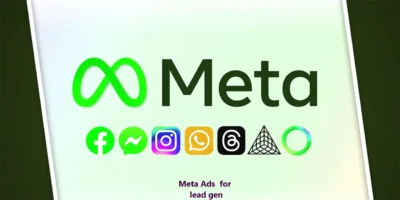If you want to utilize a translation engine other than Google Translate, here are four of the best options to consider. There are several reasons why you should avoid using Google Translate.
Best Google Translate Alternatives
Although the translation service is one of the most widely used in the world, it is not always the most accurate or feature-rich translation service available. Or maybe you just want to get away from Google’s environment, which is understandable. Whatever your reason for looking for an alternative, there are many internet translation services that are simply not up to par. Fortunately, we’ve compiled a list of four of the greatest for you to consider.
Read More: 29 of the best science fiction books everyone should read
DeepL
DeepL, an online translation service that has grown in popularity in recent years, is the first on our list. DeepL originated as a project developed by a German start-up, but it has now grown to become the most accurate and trustworthy translation service currently accessible. Despite the fact that DeepL only supports 26 languages at the time of writing this article, the languages it does support are extremely accurate. The key here is to use AI and deep learning to translate languages rather than more traditional ways.
Apart from providing better accurate translations than Google, DeepL also has a number of useful features worth mentioning. Despite the fact that it is not a browser application for translating web pages and instead exists exclusively online, it is nonetheless extremely useful. DeepL, for example, provides numerous translations for any sentence, which may or may not be accurate depending on the context.
You can assess translations for accuracy and listen to them to get an idea of how the translation would sound if spoken by a native speaker. If you perform a lot of translating and you disagree with a recurring term, you can explicitly override it in your own personal dictionary so that DeepL always translates the text the way you want it to be translated.
You can also choose between formal and casual translation tones, albeit this function is only available to users who pay for a premium subscription. DeepL can also assist you in translating entire documents, and it supports automatic translation of PDF, DOCX, and PPTX file types.
Reverso
Reverse, one of Google Translate’s longest-running competitors, is next on the list. Reverso is a full-featured language translation package that includes a dictionary and grammar checker, but the focus here is on its real-time translation service. As you might expect, Reverso works similarly to Google Translate. You select your language pairs and then input or copy some text for the translation service to process.
Reverse’s app only supports 18 languages, but it isn’t known for its translation diversity. Reverso, on the other hand, excels in terms of ease of use. For example, if you’re translating a language like French that has a lot of accents that you might not have on your own keyboard, Reverso gives those at the bottom of the translation window for you to quickly access.
If you’re not sure if your grammar is correct, you can use the grammar checker to make sure you haven’t made any easy errors. What’s truly cool about Reverso is that it has a rephrase option that suggests alternative phrases that may sound more natural than what you’ve written.
If you’re having trouble understanding Reverso’s translation, you’ll be happy to hear that it also has an automatic context dictionary that will show you examples of the translated or original term in actual documents so you can get a better understanding of the language.
Read More: Learn How to Use Tab Groups in Google Chrome
Translator by Microsoft
While Google Translate is a popular and effective online translator, there are instances when you’ll require translation services on the go. Despite the fact that there are a plethora of online translators available for usage in the real world, Microsoft Translator shines on iOS and Android. The software itself is divided into a few different features. You can type or paste text into the text translator to translate a sentence, and it will automatically detect your language.
There are other options to have the app read this to you if you need it. However, it is in its other qualities that Microsoft Translator stands out. You may use your phone’s microphone to translate your speech if necessary, and you can even set it up so that you can hold a discussion with individuals in the real world exclusively through the app.
This can be accomplished by selecting the split option, which will mechanically translate phrases back and forth as if you were conversing in real time. With Microsoft Translator’s auto mode, you may accomplish this automatically as well. Additionally, Microsoft Translator has an image translation service that allows you to upload photographs from your camera roll or snap fresh ones for the app to automatically interpret, as well as support for a multilingual conversation function.
Translate by index
Yandex Translate has finally made it onto our list. If you’re looking for a translation that closely resembles Google Translate, Yandex Translate is a wonderful option. Because Yandex Translate’s UI is so similar to Google Translate’s, learning how to use it should be rather simple. You may choose your languages from a drop-down menu, and with 100 synchronized translation options, you’re not missing out on much compared to Google Translate’s own 109 languages.
Similarly, if you’re reading a website in another language, you may use Yandex Translate to translate full websites, a capability that Google Translate excels at but that other options typically ignore. Content and picture translation is also supported, so if you need to convert a PDF or DOCX file, you can effortlessly update the entire document without having to rely on copy and paste.








